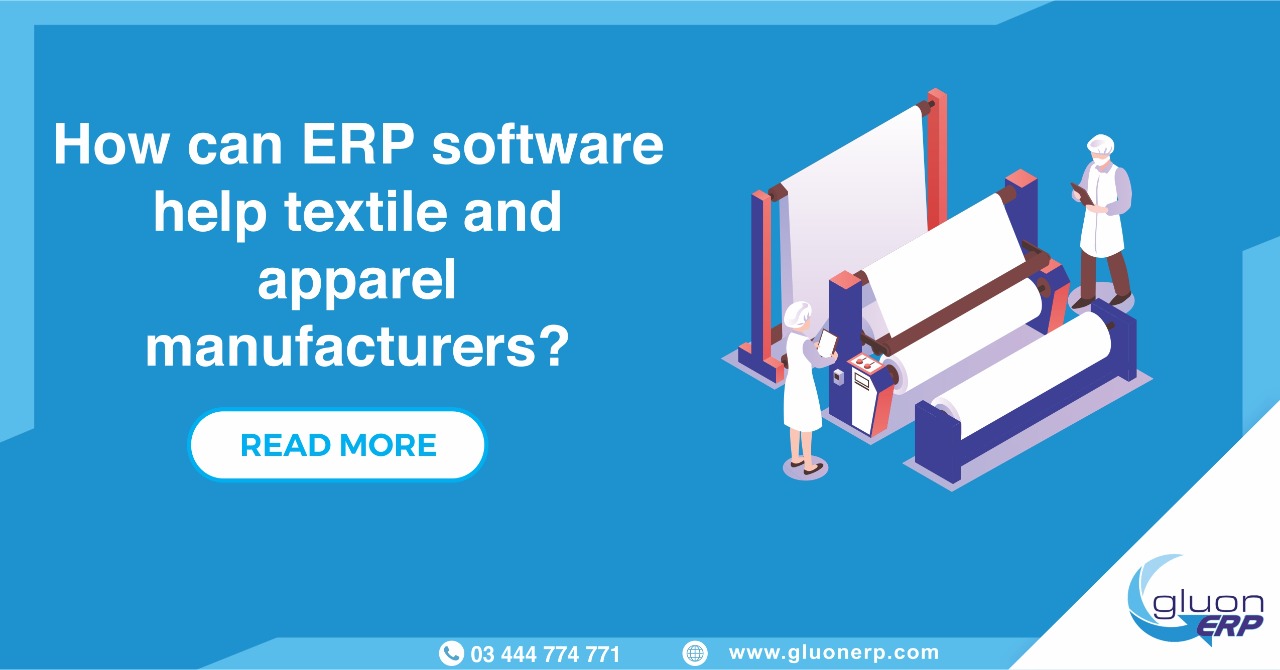
Enterprise Resource Planning (ERP) software is a very essential business tool for a firm to organize day-to-day activities on time. Textile ERP Software integrates different functions into a comprehensive system that streamlines information and processes around the entire organization.
Textile and Apparel manufacturers are one of the most fast-growing sectors, providing job opportunities to thousands of people. The steps that are involved in textile industries require various manual processes along with a considerable amount of time. The steps include designing, producing, and distributing yarn to cloth and clothing. To improve productivity and organize the textile processes, one can implement installing efficient ERP software. This will help handle all kinds of different textile industry requirements from sales to shipment.
Textile ERP software can help automate all various manual processes. It can manage the designing and production of clothes and handle the distribution of assembled goods. It becomes simple for clothing manufacturers to organize every procedure in the textile industry with sufficient inventory software like ERP. A textile ERP can also reduce manual mistakes as well as reduce delays in delivery time.
The Role of Textile ERP in the Textile Industry
Here are a few of the areas where textile ERP can prove useful:
· Resources requirements planning
Textile ERP allows you to manage and view the resources to make a suitable business decision.
· Finance Management
In the textile industry, co-operation among each sector is necessary for efficient regulation of work. Textile ERP can help solve problems related to accounting. It can manage finance processes such as accounts payable and receivables, expenses and revenue etc.
· Cost-Effective allocation of the work and streamline process performance
Excellent cloth manufacturing ERP software can automatically produce orders. It offers you rich features to make business processes easier. It helps you track order statuses, change BOMs (Bill of Materials), and designs. Also, it promotes a convenient transfer of BOMs to work orders, trace products in their route, and systematically perform activities. This helps in time management, employee efficiency, and less confusion.
· Time Management
Maintaining reports and invoices can be better and managed in a single system. This allows you to prevent loss of data and makes sure that the data is secure. Businesses can allow themselves to meet all customer demands with an all-in-one textile ERP platform. This will help in storing data records, for example, order purchases and their sales, HR files, fact sheet, etc., in real-time.
· Management of Customer Relationship
Customer information can be well kept in a centralized space and retrieved when it is needed. This will help in minimizing the amount of time. Manufacturers can address customer feedback, queries, requests in real-time, and track them with the help of CRM module. This will result in a non-error business environment.
Benefits of Installing ERP Software in the Textile and Apparel Industry
Let us highlight some benefits of using our ERP software in the textile industry.
1. Reduce inventory or stock-outs:
Textile ERP software helps you understand the bottom-line cost whilst maintaining an accurate mix of commodities across the firm. ERP software benefits the company in the management of inventory by sorting the product line. As per the self-organized, apparel matrix different categories of size, price, color, vendor, style, etc.
2. Management of customer and supplier queries:
Automating processes of manufacturing and accounting of inventory helps sales and HR teams to respond to supplier and customer queries in a better way. Customer support can also access client data immediately. This can resolve problems relating to difficulty in supply chain management, which is on the go.
Furthermore, ERP software can help assist in harmonizing purchased orders from retail outlets. It also accommodates the tracking of online transactions. This can happen while managing the product delivery date and calculating the overall sales based on different margin rates.
3. Personalized handling of data:
Installing a professional ERP software implies that configuration would be more specific to the requirements of the firm. It is highly recommended that when investing in a long-term software such as ERP, one finalize the personalization of technicalities carefully. This allows the system to be more compatible with your workplace and workforce eventually.
Having a customized system makes sure that the trademark style of the business is significantly highlighted. It increases the overall efficiency of your workplace
4. Mobile data security and access:
Having Textile ERP in the textile and apparel industry facilitates freedom of the controlled data access to the employees when making visits for sales. To make sure the integrity of the system is intact there are financial audits on-site quality checks. For any apparel industry looking to increase profitability, a secure structure is an asset to exile any threat of business espionage.
Our team makes sure that GLUON ERP will give accurate information to authorized customers who work from anywhere around the world. This helps facilitate prompt decision-making, improves the relationship between customers, vendors, and coworkers, and increase productivity.




Comments